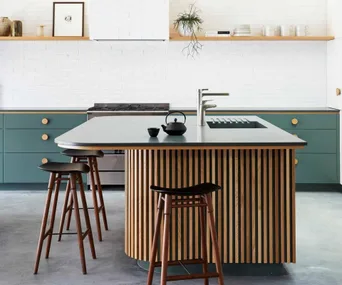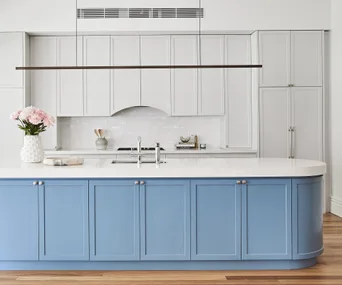With a plethora of technology-driven benchtop solutions now available, there’s no better time to scratch beneath the proverbial surface and explore the brave new world of composites.
Offering strength, durability, affordability and sustainability as major selling points, these high-tech engineered kitchen benchtop surfaces also boast hygienic, water-repelling, heat- and stain-resistant qualities that have been carefully tailored to meet our everyday kitchen demands.
In busy households, where cleaning and protecting marble benchtops is just one chore too many, homeowners are seeking affordable, durable and practical alternatives.
With the flexibility with finishes, thicknesses and slab, it’s no wonder that engineered stone is fast becoming the material of choice in modern kitchens, guaranteeing virtually seamless applications and minimal waste.
And with the latest advances in texture and patina, these materials can deliver character like never before.
TOP 5 ENGINEERED STONE SURFACES
1. DEKTON
Dekton is a high-tech solution for those whose hearts are set on the look and feel of stone, without the bulk, weight or upkeep.
Dekton benches are lightweight and available in slabs as thin as 8mm, all while being heat resistant, scratch resistant, UV resistant and non-porous. It also comes in a range of colours and finishes. Unlike quartz benches, the controlled manufacturing process means your Dekton bench will not change colour over time.
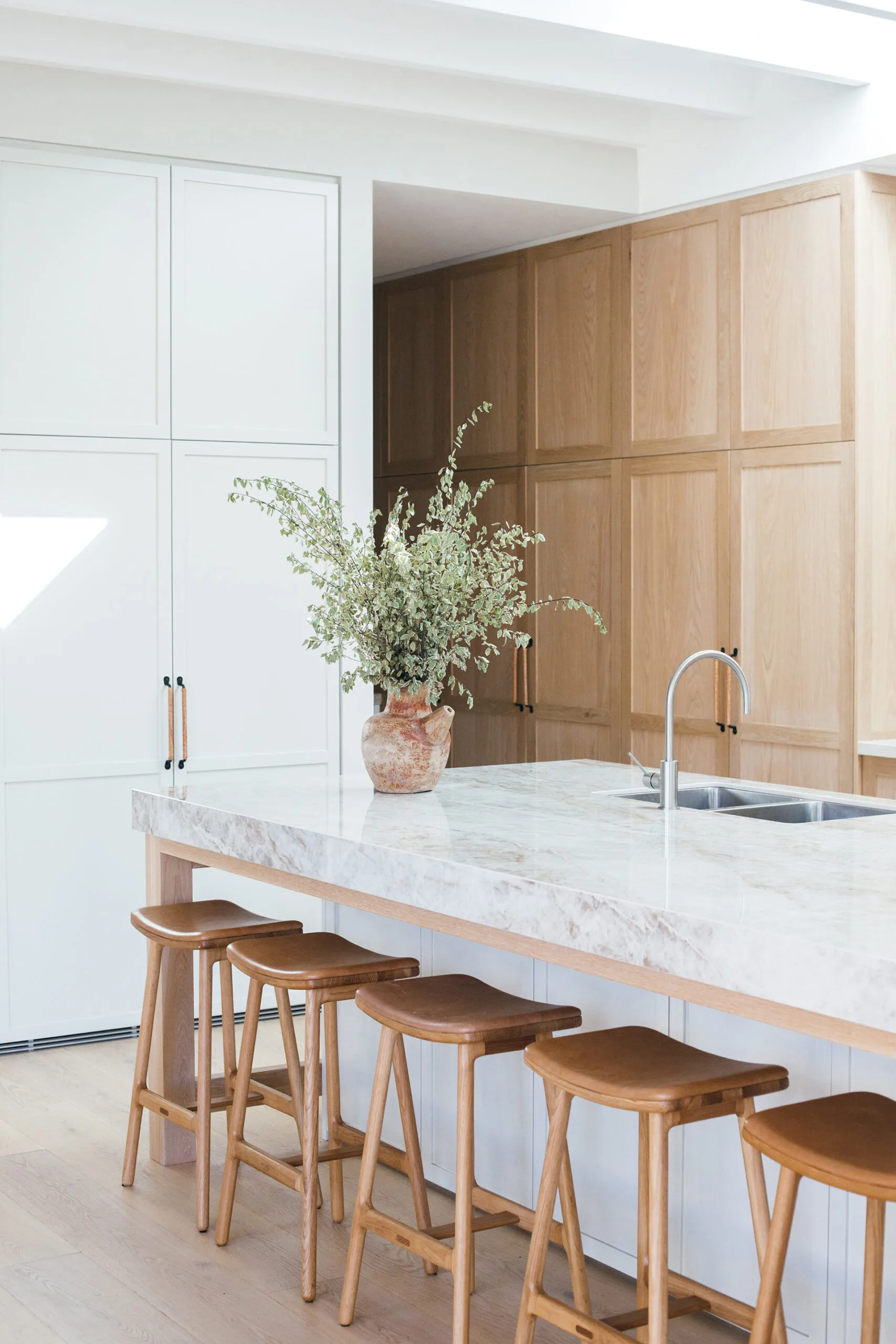
The ‘Taga’ Dekton stone benchtop by Cosentino is the jewel of the kitchen at Kyal and Kara’s family home on the NSW Central Coast.
(Photography: Grace Picot) (Credit: Photography: Grace Picot)2. SILESTONE
If you love the appearance of natural stone but are looking for the durability of an engineered benchtop, Silestone may be the perfect choice for you. Made predominantly from natural quartz, it is a non-porous work surface resistant to stains, scratches and even the growth of bacteria.
On the other hand, Silestone is not heat resistant, so keep that in mind if you’re an avid home cook who would like to put a pan on the kitchen island from time to time.
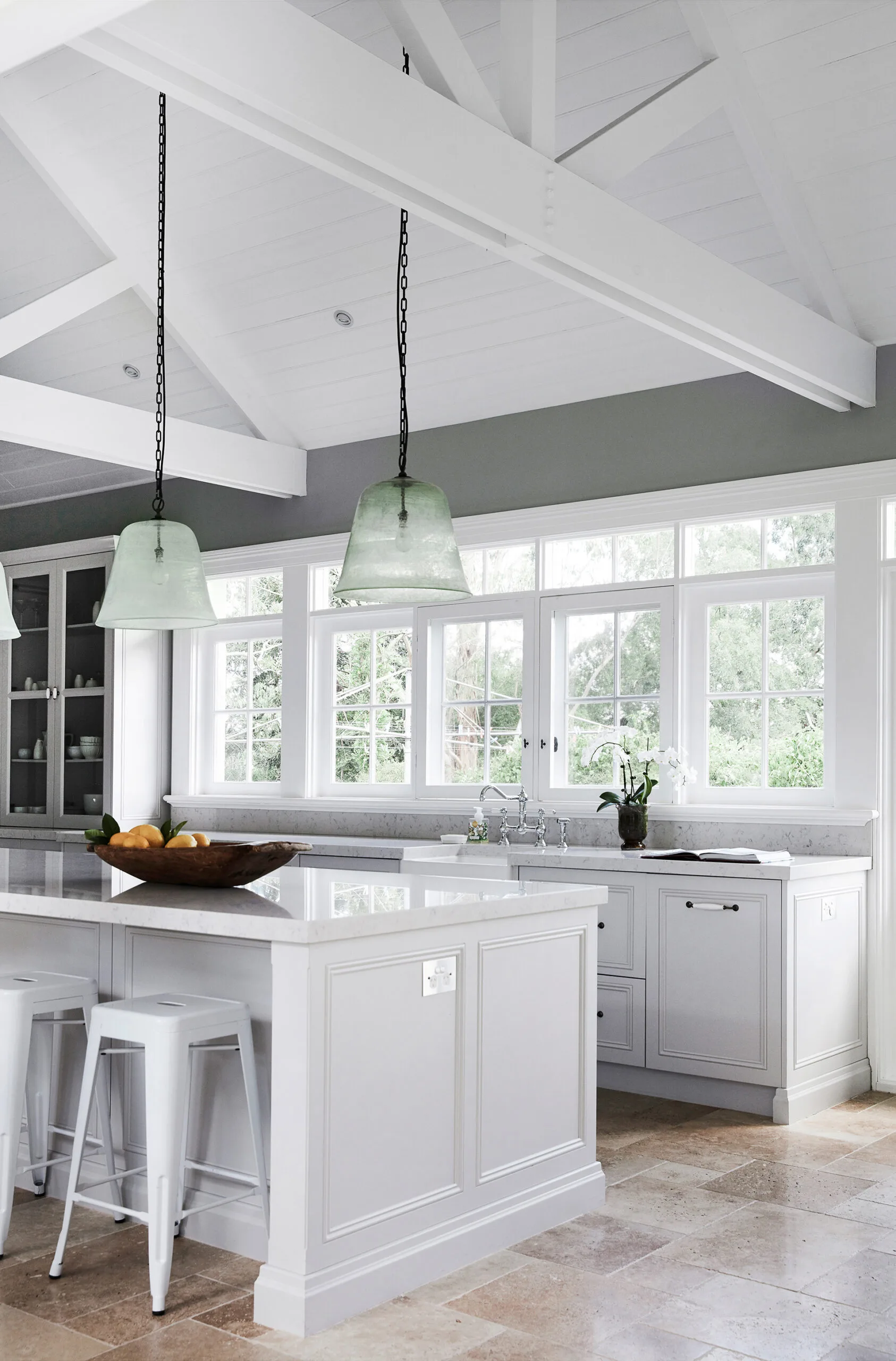
The owners of this historic Sydney home opted for Silestone for their kitchen which is used “non-stop.”
(Photography: Maree Homer) (Credit: Photography: Maree Homer)3. LAMINEX
Laminex benchtops are a great option for either a quick kitchen revamp or a budget friendly overhaul. With a range of finishes that replicate the look of natural stone along with the option of creating a seamless benchtop, you really can’t go wrong with this choice.
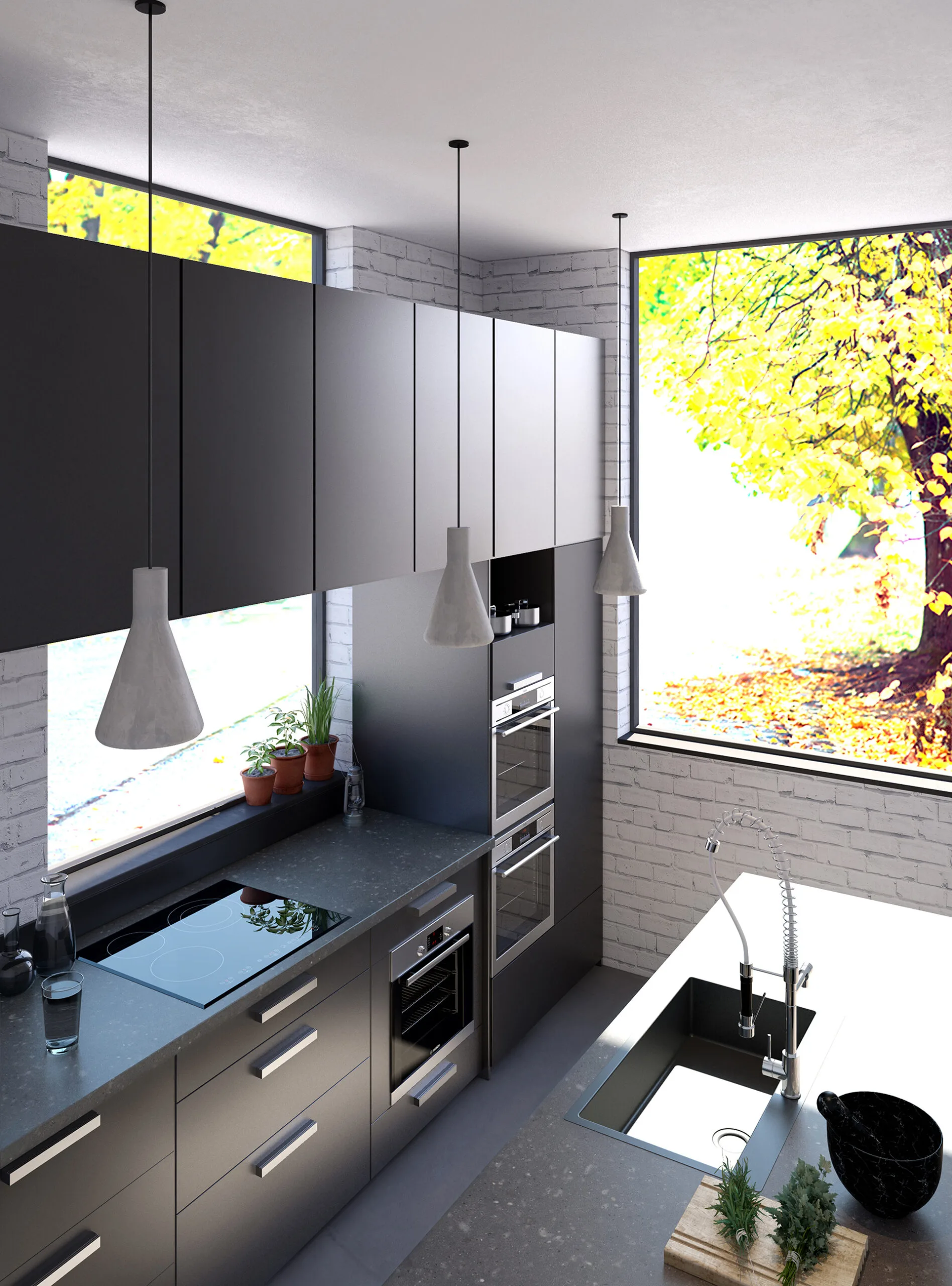
This kitchen channels a New York city vibe, with Laminex benchtops in Bitumen. Photo: Laminex
4. PAPEROCK
Constructed from paper and resin, Paperock is a durable surface that can resist temperatures up to 180 degrees Celsius. With the added benefit of being more affordable than natural stone, concrete or stainless steel, Paperock is also incredibly strong, resistant to water, and designed to last.
Choose between either Paperock Solid, made from renewably sourced paper, or Paperock Ply, their newest product that incorporates high quality exterior grade Birch plywood, which makes it both lighter and more affordable.
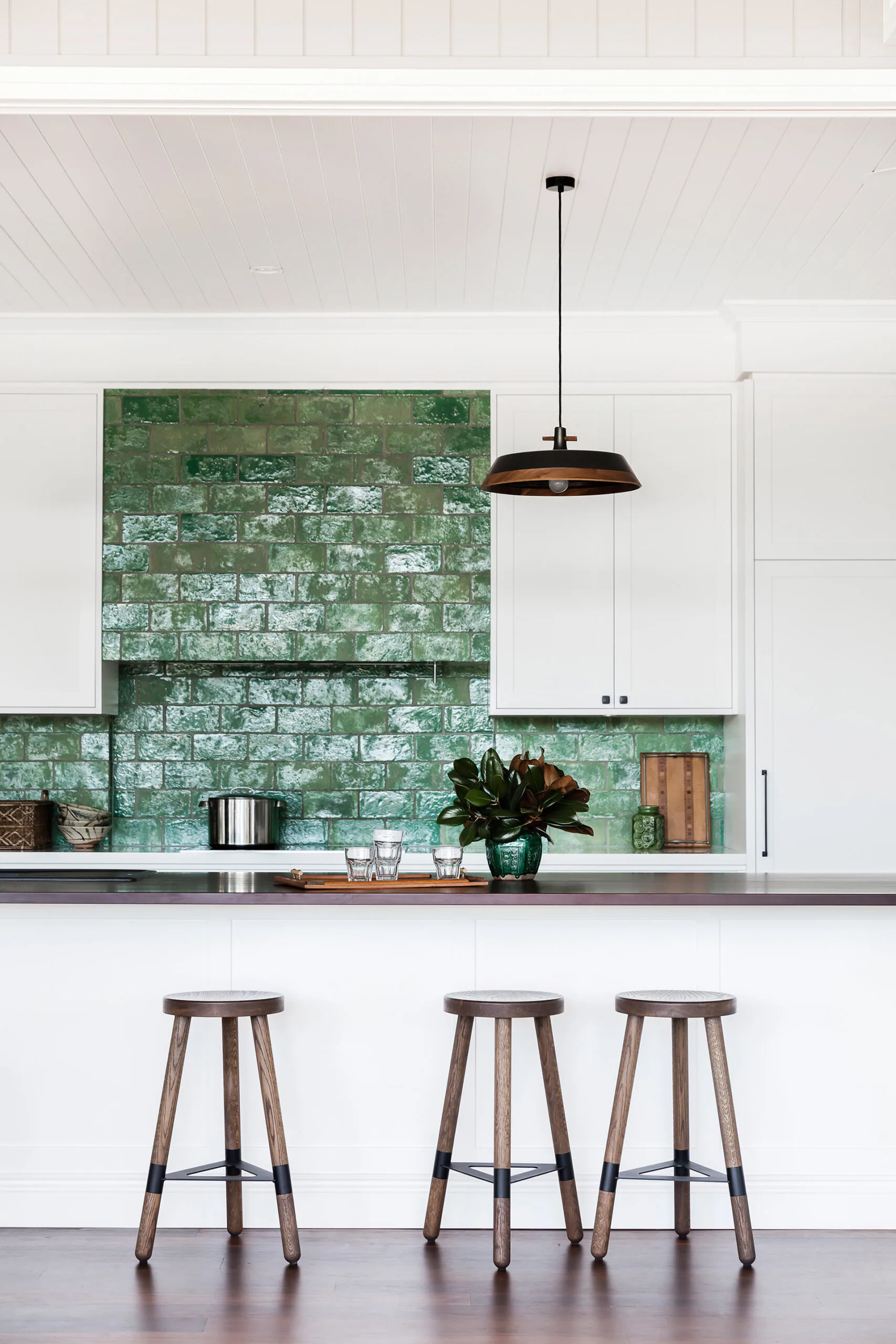
Paperock benchtops in ‘Leather’ where a bold choice that paid off when paired with the white and green tones of this renovated Queenslander filled with jewel-tones.
(Photography: Maree Homer) (Credit: Photography: Maree Homer)5. CAESARSTONE
Like other quartz composite benches, Caesarstone is made up of 90 percent natural stone particles. This makes it a more durable option to natural stone, requiring little to no maintenance.
While Caesarstone is heat resistant, it may change colour over time from sudden changes in temperature – so avoid placing hot pots and pans on its surface.
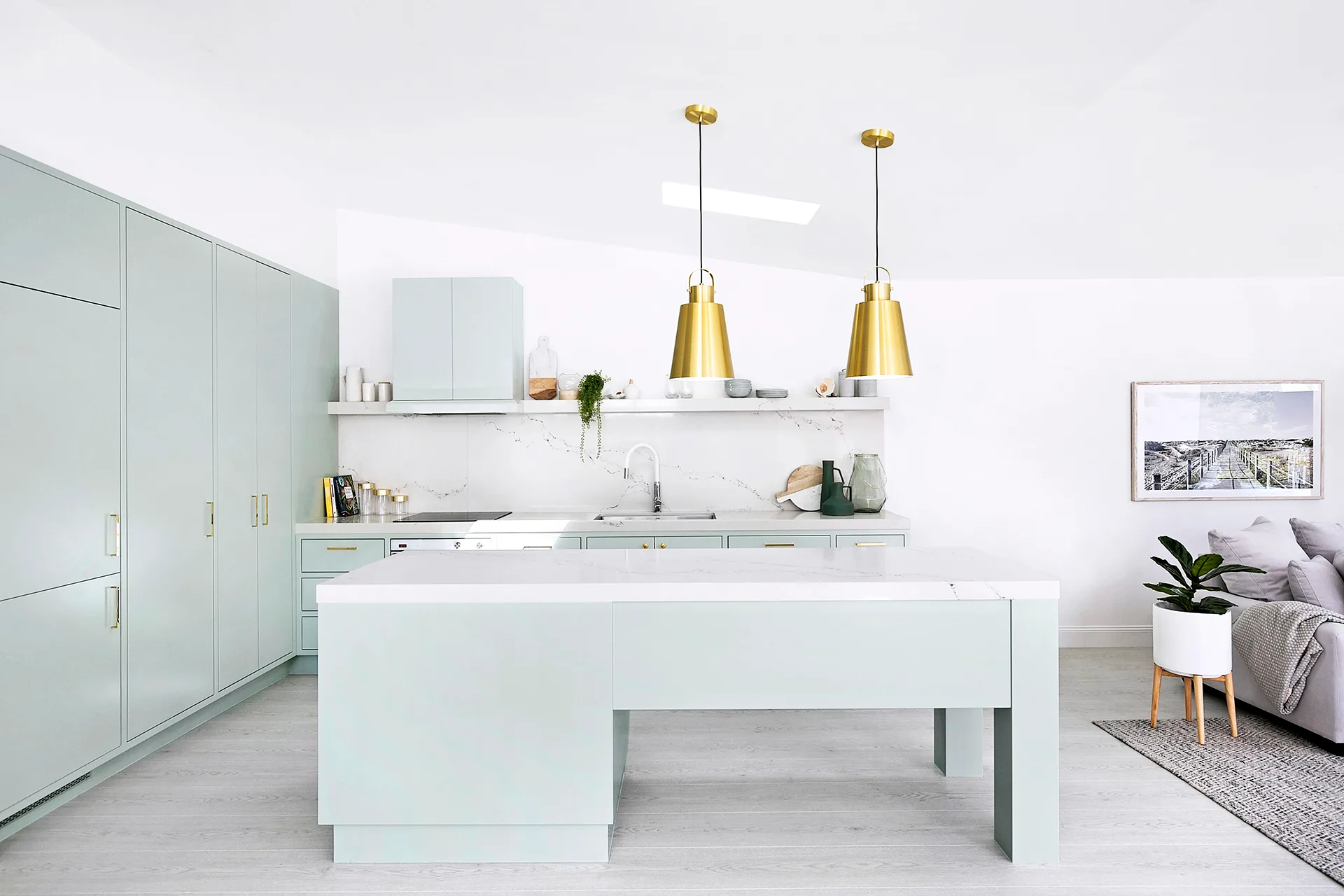
“We knew we couldn’t afford real marble for this project, so Caesarstone was the obvious alternative for the benchtop,” says Lana Taylor of Three Birds Renovations, on choosing materials for this Sydney home’s renovation.
(Photography: Supplied) (Credit: Photography: Supplied)EXPERT TIPS FOR CHOOSING ENGINEERED STONE
Consider overlaying a tired benchtop with a slimline quartz composite such as Silestone, available in cladding thicknesses of 12mm, 20mm and 30mm.
Many composite materials can be used in both vertical and horizontal applications, including splashbacks, joinery, furniture and flooring, which presents fresh design possibilities for kitchens, bathrooms and laundries.
The water-resistant qualities of composites make them ideal outdoor material for seamless alfresco entertaining.

